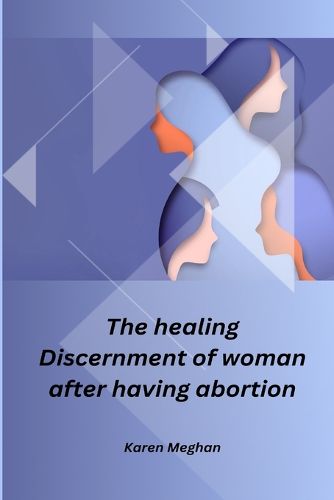Readings Newsletter
Become a Readings Member to make your shopping experience even easier.
Sign in or sign up for free!
You’re not far away from qualifying for FREE standard shipping within Australia
You’ve qualified for FREE standard shipping within Australia
The cart is loading…






This title is printed to order. This book may have been self-published. If so, we cannot guarantee the quality of the content. In the main most books will have gone through the editing process however some may not. We therefore suggest that you be aware of this before ordering this book. If in doubt check either the author or publisher’s details as we are unable to accept any returns unless they are faulty. Please contact us if you have any questions.
Spaces and opportunities for women to share, reflect upon and explore their
personal experiences of abortion, are limited by a range of social judgments associated
with having an abortion. This doctoral research project investigates how 23 diverse
Australian women made sense of their abortion experiences, in ways that left them feeling
better (or fine)1 about themselves and their decision. Within the study, a holistic approach
to women's experiences of abortion is adopted and a range of dimensions are explored:
physical, emotional, intellectual, social and spiritual. The phenomenologically-grounded
research methodology employed in the study proceeded in two phases, designed to access
the ways in which women generate meaning about their abortion experiences through
stories and their bodily-felt senses. The first phase invited each woman to retell her
abortion experiences and how she interpreted them, via an open-ended, semi-structured
personal interview or an online survey/journal. The second phase included eight women
from Phase I who returned to participate in an innovative Focusing and Art Process,
designed to access each woman's subjective bodily-felt sense of her abortion experiences.
The findings show that women's responses to abortion are varied and multi-layered.
Participants had a range of ways of making sense of their abortion experiences, including:
engaging with alternative discourses about abortion, ideological resistance and agency,
developing personal symbolism and ritual, reviewing their existential beliefs and
developing spiritual connections. Each of these had implications for how they felt about
abortion and for how they lived their lives. Inviting women to connect with their bodilyfelt
experiences of abortion facilitated their access to a resourcefulness and a positivity
that tends to be obscured through verbal accounts alone. By adopting a broader
framework for abortion, which acknowledges bodily, existential and spiritual connection,
women, as this study demonstrates, have the opportunity to develop their sense of what
they value and what supports their growth.
$9.00 standard shipping within Australia
FREE standard shipping within Australia for orders over $100.00
Express & International shipping calculated at checkout
This title is printed to order. This book may have been self-published. If so, we cannot guarantee the quality of the content. In the main most books will have gone through the editing process however some may not. We therefore suggest that you be aware of this before ordering this book. If in doubt check either the author or publisher’s details as we are unable to accept any returns unless they are faulty. Please contact us if you have any questions.
Spaces and opportunities for women to share, reflect upon and explore their
personal experiences of abortion, are limited by a range of social judgments associated
with having an abortion. This doctoral research project investigates how 23 diverse
Australian women made sense of their abortion experiences, in ways that left them feeling
better (or fine)1 about themselves and their decision. Within the study, a holistic approach
to women's experiences of abortion is adopted and a range of dimensions are explored:
physical, emotional, intellectual, social and spiritual. The phenomenologically-grounded
research methodology employed in the study proceeded in two phases, designed to access
the ways in which women generate meaning about their abortion experiences through
stories and their bodily-felt senses. The first phase invited each woman to retell her
abortion experiences and how she interpreted them, via an open-ended, semi-structured
personal interview or an online survey/journal. The second phase included eight women
from Phase I who returned to participate in an innovative Focusing and Art Process,
designed to access each woman's subjective bodily-felt sense of her abortion experiences.
The findings show that women's responses to abortion are varied and multi-layered.
Participants had a range of ways of making sense of their abortion experiences, including:
engaging with alternative discourses about abortion, ideological resistance and agency,
developing personal symbolism and ritual, reviewing their existential beliefs and
developing spiritual connections. Each of these had implications for how they felt about
abortion and for how they lived their lives. Inviting women to connect with their bodilyfelt
experiences of abortion facilitated their access to a resourcefulness and a positivity
that tends to be obscured through verbal accounts alone. By adopting a broader
framework for abortion, which acknowledges bodily, existential and spiritual connection,
women, as this study demonstrates, have the opportunity to develop their sense of what
they value and what supports their growth.